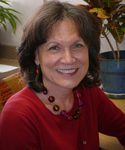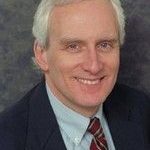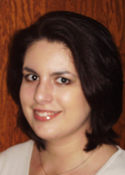 Genelle Lamont, MPH
Genelle Lamont, MPH
What was your educational and relevant work experience prior to enrolling in the OHSRP program?
I received a master degree in Environmental Health from the University of Minnesota, School of Public Health. Prior to joining the OHSRP program, my work experience included public health research and internship positions at the Centers for Disease Control (CDC), Division of Diabetes Translation, the Minnesota Department of Health, the Great Lakes Inter-Tribal Council Native American Research Center for Health and non-profit organizations, including Preventing Harm Minnesota (St. Paul, MN), National Alliance on Mental Illness of Minnesota (St. Paul, MN) and the Center for Environmental Health (Oakland, CA). These positions allowed me to work on a variety of public health topics, including healthy housing, radon, tobacco use, GIS mapping, diabetes, environmental and public health advocacy, mental health and American Indian and Minority Health.
What made you interested in the field of occupational health services research and policy?
My previous work and interest in environmental and occupational health and advocacy led me to pursue coursework and volunteer activities in policy and policy research during my master’s program. This experience allowed me to see the power of research and evidence-based practice to influence policy and ultimately improve population health. The Occupational Health Services Research and Policy doctoral program allows me to develop further expertise in this area and build necessary leadership and research skills to achieve my career goals.
What made you choose the University of Minnesota?
I chose the University of Minnesota because I had a wonderful experience with the School of Public Health during my master’s degree. I really like the supportive faculty and staff.
What jobs or internships have you been able to work on while working on your degree?
I have held four positions while working on my doctoral degree. The first few years I worked as a teaching assistant at the University of Minnesota, Division of Environmental Health Sciences teaching two online introductory environmental health courses (one undergraduate and one graduate), where I learned skills in course development, teaching, and evaluation.
I also worked as a research assistant with the American Indian Community Tobacco Projects (AICTP), where I developed skills in community-based participatory research, survey design, data collection, management and analysis.
I worked on a three-year Clearway funded project called the Tribal Tobacco Prevalence Study, the first state-based American Indian commercial tobacco use prevalence study; also the basis for my dissertation project.
Last year I was a Directors of Health Promotion and Education (DHPE) Fellow working at the Minnesota Department of Health, Center for Health Promotion, where I worked to develop the first staff Health Literacy Workshop. I also worked on the health equity team doing policy research that became part of the groundwork for the nationally recognized MDH Health Equity Report to the Legislature.
My current full-time position as the Minnesota Oral Health Surveillance Coordinator at the Minnesota Department of Health Oral Health Program involves the collection, management, analysis and presentation of Minnesota relevant oral health data on the online Minnesota Public Health Data Access Portal. This is the first state oral health surveillance project to add oral health as a topic on the Environmental Public Health Tracking Network, a CDC state infrastructure project. I am involved in really exciting work because this surveillance project will increase awareness of the connection between oral health and chronic disease and provide accessible data, and health literate information to the public, oral health providers, dental public health, researchers, and policymakers to drive dental public health practice and policy.
What type of job would you like to find upon completion of the program?
After I finish my degree, I plan to pursue jobs in academia, government, and consulting. My ideal position would be working in public and occupational health research and policy, program evaluation, health equity and health literacy.
What would you say to a student considering the program?
William Shakespeare wrote, “To thine own self be true.” I would tell students to be cognizant of their values, passions, talents and skills they bring to the workforce. Pursing a PhD program is a huge time and financial investment. Investigate the knowledge and skills you will gain in the OHSRP curriculum and the networking and hands-on work opportunities you will have during the program and see if they are a good fit. The OHSRP program is a great way to develop research and practice-based skills and provides opportunities for interdisciplinary study. The OHSRP program faculty and staff are kind and resourceful and provide outstanding student support.
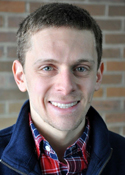 Ryan Klein
Ryan Klein
 Genelle Lamont, MPH
Genelle Lamont, MPH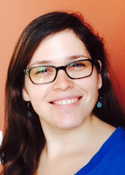 Jennifer Saunders
Jennifer Saunders